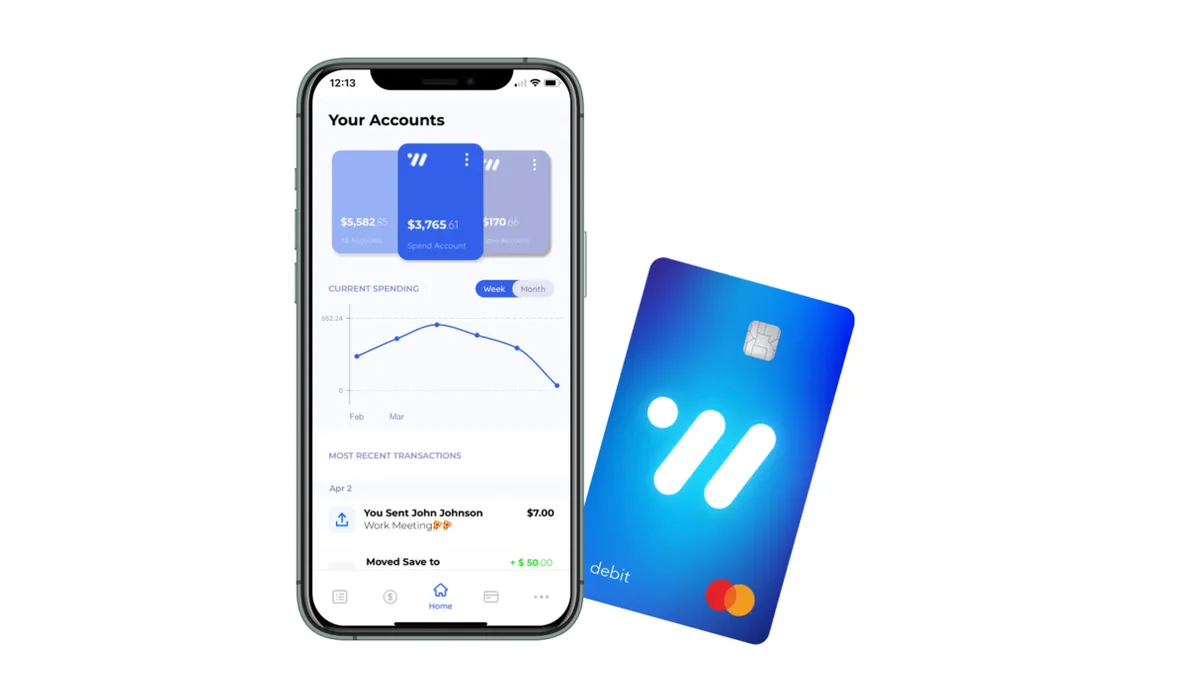Sometimes the quickest way to market is to go out and buy a company that is already offering the services you want to provide.
That was the strategy for Hassan Miah, founder of startup Paybby, which closed on its acquisition of neobank Wicket last month.
Miah, who launched Paybby as a Paycheck Protection Program (PPP) marketing agent to help the underserved get access to PPP loans, was looking for a way to fast-track his goal of offering banking services to Black and Brown communities.
Miah said he was aware of how long it could take to launch a challenger bank, and wanted to acquire one to expedite the process.
"These things take a lot of time and money in general," said Miah, who has a background in software development. "So I started searching, and I found an existing neobank out there and started negotiating."
Miah said he closed on the purchase of Overland Park, Kansas-based Wicket on Jan. 18 for an undisclosed amount.
"We were very fortunate to be able to acquire an existing bank that is fully operational," Miah said.
The deal means Paybby, which has been using its technology, accounting and finance expertise to simplify access to PPP loans for Black and Brown borrowers, can now offer banking services to its users.
Wicket CEO and founder Tim Prier is a significant shareholder in Paybby and will continue to be an active participant in the combined company, said Miranda Tan, Paybby's marketing director.
"At the moment, we are keeping both the Wicket and Paybby names since we haven't made any decision on the branding," Tan said.
Wicket is available on iPhone, while its Android app, which is in final beta, is expected to launch soon, Miah said.
Through its partnership with Radius Bank, Wicket offers fee-free Federal Deposit Insurance Corp.-insured savings and checking accounts and early direct deposit and automatic savings tools.
Miah said he has been monitoring the growing challenger bank space and its opportunities to meet the needs of underserved communities since last summer.
"Right after George Floyd, I realized I needed to figure out a way to do something," said Miah, a former managing director at Intel and partner at KPMG, who has worked on deals in entertainment and community banking. "I started looking at the market, and I was aware that banking was at an inflection point, because of technology. It's sort of having its Amazon moment."
Paybby, which is pronounced "pay baby," is targeting the U.S.'s 110 million Black and Brown people, who have more than $3 trillion of spending power, Miah said.
Miah said the platform is focused on using artificial intelligence and alternative data to enhance the ability for Black and Brown communities to participate in the banking system.
"There's a few reasons why people don't bank. One is they don't trust banks, they have to pay overdraft fees or monthly fees, and many people can't even qualify because they can't pass [know-your-customer], even though they should," Miah said. "With artificial intelligence and data science, we can expand what we call the efficient frontier of those who couldn't pass KYC. And that will dramatically affect the availability of banking to these communities."
Miah said he plans to add overdraft protection, free retailer cash deposits, payments, transfers, check cashing, payday loan advances and consumer lending to the platform eventually.
He also said he hopes to gaining a national banking charter within a year.
Paybby has been active in the PPP space, and has been helping non-White business owners process their PPP applications through its "Together We Can" program.
Black-owned Carver Federal Savings Bank is also using Paybby's PPP platform.
"Our vision for Paybby is that we will simplify and solve banking to allow much greater access for the Black and Brown community, from everything from deposits to loans, to getting their money faster and easier," Miah said.
Paybby is among several challenger banks targeting the Black and Brown market.
MoCaFi launched in 2016 with the goal of promoting financial inclusion and wealth creation for Black and Brown communities.
More recently, Greenwood Financial, a new challenger bank aimed at serving Black and Latinx communities, announced it has amassed 500,000 signups in the 100 days since opening its waitlist in October.
The Atlanta-based neobank, which is expected to launch in May or June, is a joint venture between Ryan Glover, an Atlanta-based entrepreneur, civil rights leader Andrew Young and rapper and activist Michael "Killer Mike" Render.



















